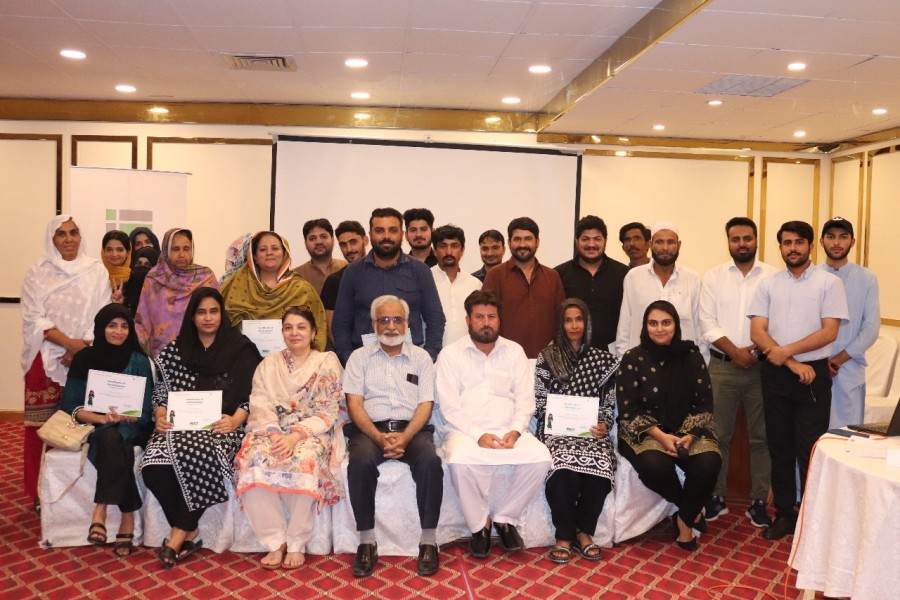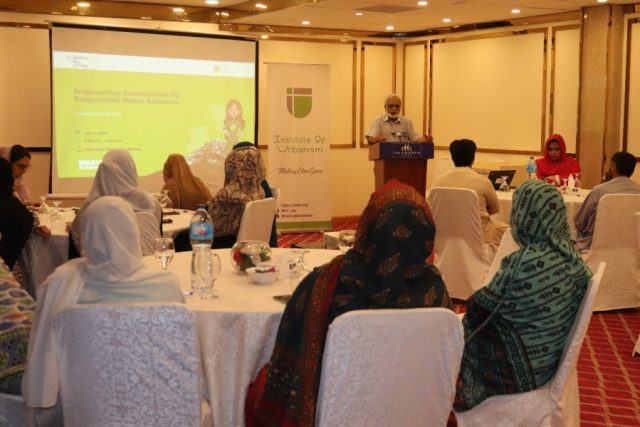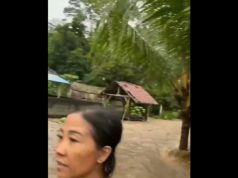ISLAMABAD, Monday, July 21, 2025 (WNP): The Institute of Urbanism (IoU), in collaboration with Heinrich Böll Stiftung, hosted a hands-on training workshop on Sustainable Waste Management on Monday, aimed at equipping local communities with practical skills to manage waste responsibly and promote environmental stewardship in a bid to combat the mounting waste crisis in the capital’s underserved areas.
The workshop, held in Farash Town, brought together a diverse group of participants including students, shopkeepers, tailors, housewives, and community activists. The event focused on waste segregation, composting, and micro-business opportunities stemming from circular economy models—especially critical in non-CDA sector areas where uncollected waste poses serious health and environmental risks.
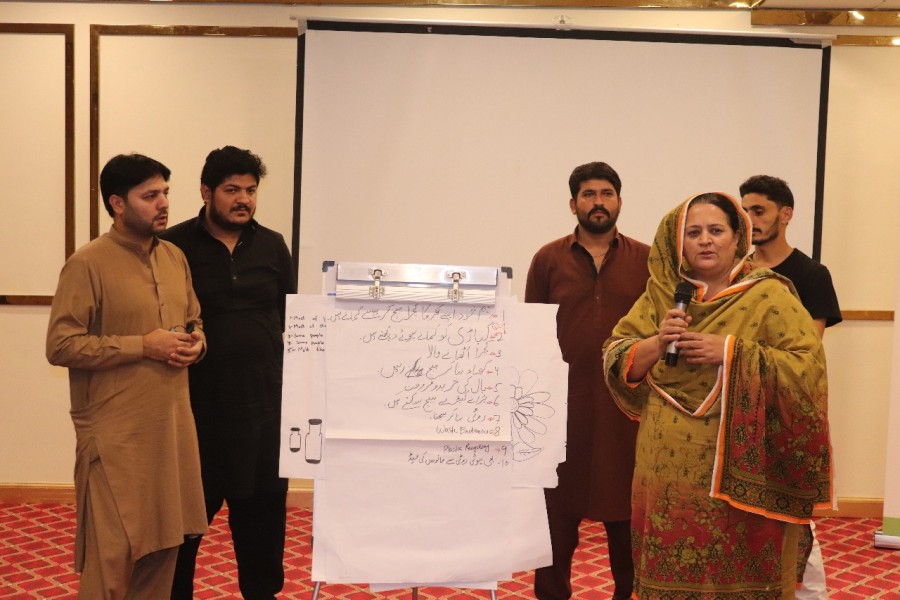
Islamabad generates an estimated 1,575 tons of municipal waste daily, yet only 650 to 700 tons reach official dumping sites. The rest is either illegally dumped or openly burned, contributing to pollution, disease, and climate hazards.
“This is not just an environmental issue—it’s a health and economic one too,” warned Dr. Ejaz Ahmad, Executive Director of IoU. “Unregulated waste has become a societal crisis with long-term consequences that must be addressed at the grassroots level.”
Led by Tayyaba Pervaiz, Program Coordinator at IoU, and Aqsa Arshad from Eco Organics, the sessions combined theory with hands-on learning. Participants were taught how to separate different types of household waste and utilize organic waste for composting—both at home and on a larger scale.
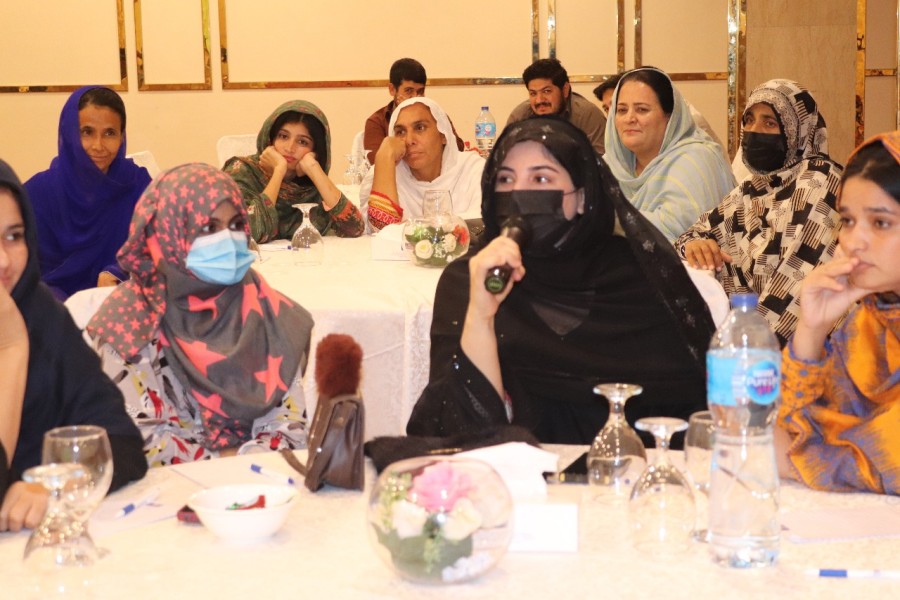
Beyond the basics, the workshop introduced circular economy principles, encouraging attendees to develop waste-based micro-business ideas. From turning kitchen scraps into compost to repurposing textile waste, locals were inspired to view waste not as a problem—but as an opportunity.
“I’ll start composting at home,” said Shams, a housewife, after the session. Usman, a local tailor, shared: “I’ll no longer burn leftover cloth—I see business potential in it.” Yasmeen Akhtar, a community activist, called the workshop “crucial for building sustainable neighborhoods.”
The event is part of a broader campaign to raise environmental consciousness in low-income urban areas and reduce Islamabad’s waste footprint. Organizers hope to replicate the initiative in other localities, empowering citizens to take ownership of their environment, one compost bin at a time.
